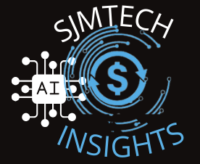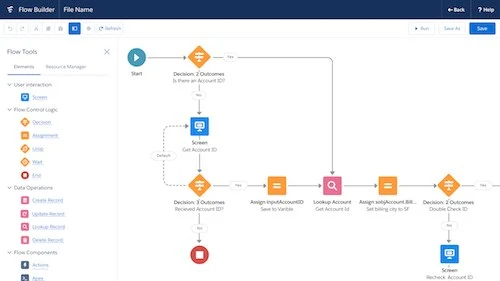In today’s rapidly evolving digital landscape, data security is of paramount importance. Companies across industries are embracing cloud-based solutions like Salesforce to manage customer relationships, streamline processes, and enhance productivity. However, as valuable as these platforms are, they bring forth the challenge of securing sensitive data. This article explores essential strategies and practices to ensure better security in Salesforce data classification, empowering your business to navigate the digital realm with confidence.
In the interconnected world of business, where data fuels decision-making, protecting sensitive information is non-negotiable. Salesforce, a leader in customer relationship management (CRM) software, empowers organizations to manage their interactions with clients effectively. However, with great power comes great responsibility, especially concerning data security.
Understanding Salesforce Data Classification
Salesforce data classification is the process of categorizing data based on its sensitivity and importance. This classification enables businesses to define access controls, encryption levels, and retention policies, ensuring that data is handled appropriately throughout its lifecycle.
The Significance of Data Classification
Effective data classification serves as the foundation for a robust security strategy. By assigning labels and categories to data, companies can focus their security efforts where they matter most. This targeted approach enhances operational efficiency while minimizing potential risks.
Common Data Classification Challenges
Despite its advantages, data classification poses challenges. Balancing security needs with operational requirements, dealing with vast amounts of data, and ensuring compliance with industry regulations can be complex. However, these challenges are surmountable with the right strategies in place.
Best Practices for Improved Data Classification
Implementing Role-Based Access Control (RBAC)
RBAC assigns access permissions to users based on their roles. This approach restricts unauthorized access, reducing the risk of data breaches. It’s crucial to regularly review and update access privileges as roles change within the organization.
Utilizing Encryption Techniques
Encryption converts data into unreadable code, ensuring that even if unauthorized parties gain access, the information remains incomprehensible. End-to-end encryption and data masking are effective methods to protect sensitive data.
Conducting Regular Security Audits
Routine security audits evaluate existing protocols, identify vulnerabilities, and propose necessary enhancements. By regularly assessing security measures, businesses can proactively address potential weaknesses.
Employee Training and Awareness
Human error is a significant contributor to data breaches. Educating employees about data security best practices and raising awareness about phishing and social engineering attacks can significantly reduce the risk of breaches.
Salesforce Security Features for Data Classification
Shield Platform Encryption
Salesforce Shield offers robust encryption capabilities, allowing companies to encrypt sensitive data at rest. This ensures that even if unauthorized access occurs, the data remains indecipherable.
Event Monitoring
Event monitoring provides real-time visibility into user activities within Salesforce. This feature enables organizations to detect unusual behavior promptly and take action to mitigate risks.
Audit Trail
Salesforce’s audit trail feature records user actions and system changes. This log helps track modifications and maintain accountability, essential for maintaining a secure environment.
The Role of Data Loss Prevention (DLP)
DLP solutions identify and prevent the unauthorized transmission of sensitive information. By monitoring data movement, businesses can prevent data leaks and enforce compliance with regulations.
Leveraging Third-Party Solutions
Complementing Salesforce’s built-in security features, third-party solutions offer specialized tools for data classification and protection. These solutions can bridge any gaps and enhance overall security.
Data Retention and Destruction Policies
Defining data retention periods and proper destruction methods is vital. Outdated data can become a liability, making regular data purging essential to minimize risks.
The Human Factor in Data Security
While technological solutions are critical, human vigilance is equally important. Employees must understand the value of data and their role in safeguarding it. Regular training and fostering a culture of security consciousness can make a significant difference.
Future Trends in Salesforce Data Classification
As technology evolves, so do security practices. Artificial intelligence and machine learning are expected to play a more significant role in automating data classification and threat detection, enhancing overall security.
In the age of digital transformation, safeguarding data in platforms like Salesforce is a priority for every business. Implementing robust data classification practices, leveraging advanced security features, and fostering a culture of security awareness can collectively fortify your organization’s data protection efforts.
FAQs
Q1: What is Salesforce data classification?
A: Salesforce data classification involves categorizing data based on its sensitivity to enhance security measures.
Q2: How does encryption contribute to data security?
A: Encryption converts data into unreadable code, making it nearly impossible for unauthorized parties to access sensitive information.
Q3: What is the significance of role-based access control (RBAC)?
A: RBAC ensures that users only have access to the data and functionalities relevant to their roles, minimizing the risk of unauthorized access.
Q4: How can businesses prepare for future data security trends?
A: Embracing emerging technologies like AI and machine learning while maintaining a proactive security mindset will help businesses adapt to evolving security challenges.
Q5: Are third-party security solutions necessary for Salesforce data protection?
A: While Salesforce offers robust security features, third-party solutions can provide specialized tools that enhance data classification and protection.




